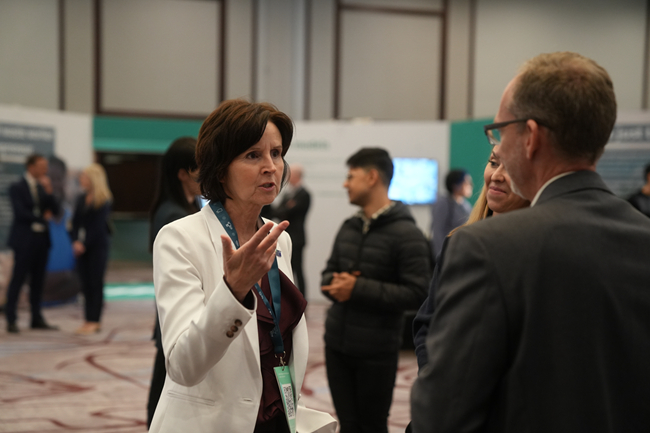Plastics and Planet: Enabling a Sustainable Future
Rhea-AI Summary
Plastic pollution is a critical issue, and the industry is committed to solving the problem. Plastics play a positive role in society, supporting modern life, the energy transition, food preservation, and healthcare. Embracing a circular economy is important to ending new plastic pollution. The company advocates for a global agreement to reduce plastic leakage and supports United Nations' efforts. Collaboration across the value chain is essential to address this global challenge.
Positive
Plastics play a important role in supporting modern life, the energy transition, food preservation, and healthcare.
Embracing a circular economy can help preserve natural resources, reduce greenhouse gas emissions, and create jobs.
The company supports the United Nations' ambition to end plastic pollution and advocates for innovative solutions.
Negative
Plastic pollution remains a significant challenge that requires collaborative efforts to overcome.
There is a need for more effective public policies to promote demand for recycled content and recycling infrastructure.
News Market Reaction 1 Alert
On the day this news was published, LYB declined 1.70%, reflecting a mild negative market reaction.
Data tracked by StockTitan Argus on the day of publication.
By Tracey Campbell, EVP Sustainability and Corporate Affairs
NORTHAMPTON, MA / ACCESSWIRE / April 30, 2024 / Plastic pollution is a critical issue, and we recognize our industry has an important role to play in solving the problem. Today, on Earth Day, we are all reminded of our responsibility to safeguard and protect our planet and there is undoubtedly a need for industry to move faster.

Framing plastics as an adversary to the planet ignores the positive role which plastics play in society, the promise of a circular economy, and the active role producers are playing to enable a global agreement to end plastic pollution.
I believe it is plastics AND planet. Plastics are essential to enabling a sustainable future, and we can move faster toward ending plastic waste by embracing and enabling a circular economy.
Positive role that plastics play in society
Without plastics we would not have modern life- they are essential to support a growing world population.
Plastics are key to the energy transition, from the latest automotive components that enable vehicle lightweighting, to integral components for wind turbines and solar panels.
Plastics help to keep food fresh longer so it can be safely stored and transported long distances, reducing food waste.
Plastics help keep us safe and healthy, from seatbelts to personal protective equipment, even medical supplies and equipment. They support quality healthcare through their use in medical applications such as gowns, hand sanitizers, biohazard bags and medicine containers.
Studies have shown that substituting other materials for plastics comes at a higher net environmental cost.
Enabling a circular economy
Keeping plastic materials circulating in the economy is critical to ending new plastic pollution. In a circular economy, plastic has too much value to be idly thrown away. A more circular economy will help preserve precious natural resources, reduce greenhouse gas emissions and create jobs for future generations.
Effective public policies can help advance a circular economy by promoting demand for recycled content through national targets and establishing funding for recycling infrastructure through funding mechanisms such as EPR or Extended Producer Responsibility schemes.
Our industry and employees around the globe are firmly committed to ending new plastic pollution by embracing a circular economy, because we know how important plastic is to everyday living today, and in the future.
Producers pushing for a global agreement to end plastic pollution
Our company supports the United Nations' ambition of ending plastic pollution.
I am present at the UN negotiations to advocate for an agreement that unleashes innovation, bolsters infrastructure, and reduces plastic leakage in the environment.
As someone who has spent their entire career in chemistry and plastics, this is a topic I am deeply passionate about. I've seen the plastic waste challenge with my own eyes, it's real and it makes me angry. The good news is that there is an increasing amount of technology and know-how to end plastic pollution, without denying society the benefits of plastic. Plastics are essential to enabling a sustainable future, and we can move faster toward ending plastic waste by embracing and enabling a circular economy.
It takes collaboration across the entire value chain to end plastic pollution, and LYB welcomes constructive dialogue on how best to address this global challenge.
Find out more about our efforts to help end plastic waste above.
View additional multimedia and more ESG storytelling from LyondellBasell on 3blmedia.com.
Contact Info:
Spokesperson: LyondellBasell
Website: https://www.3blmedia.com/profiles/lyondellbasell
Email: info@3blmedia.com
SOURCE: LyondellBasell
View the original press release on accesswire.com







